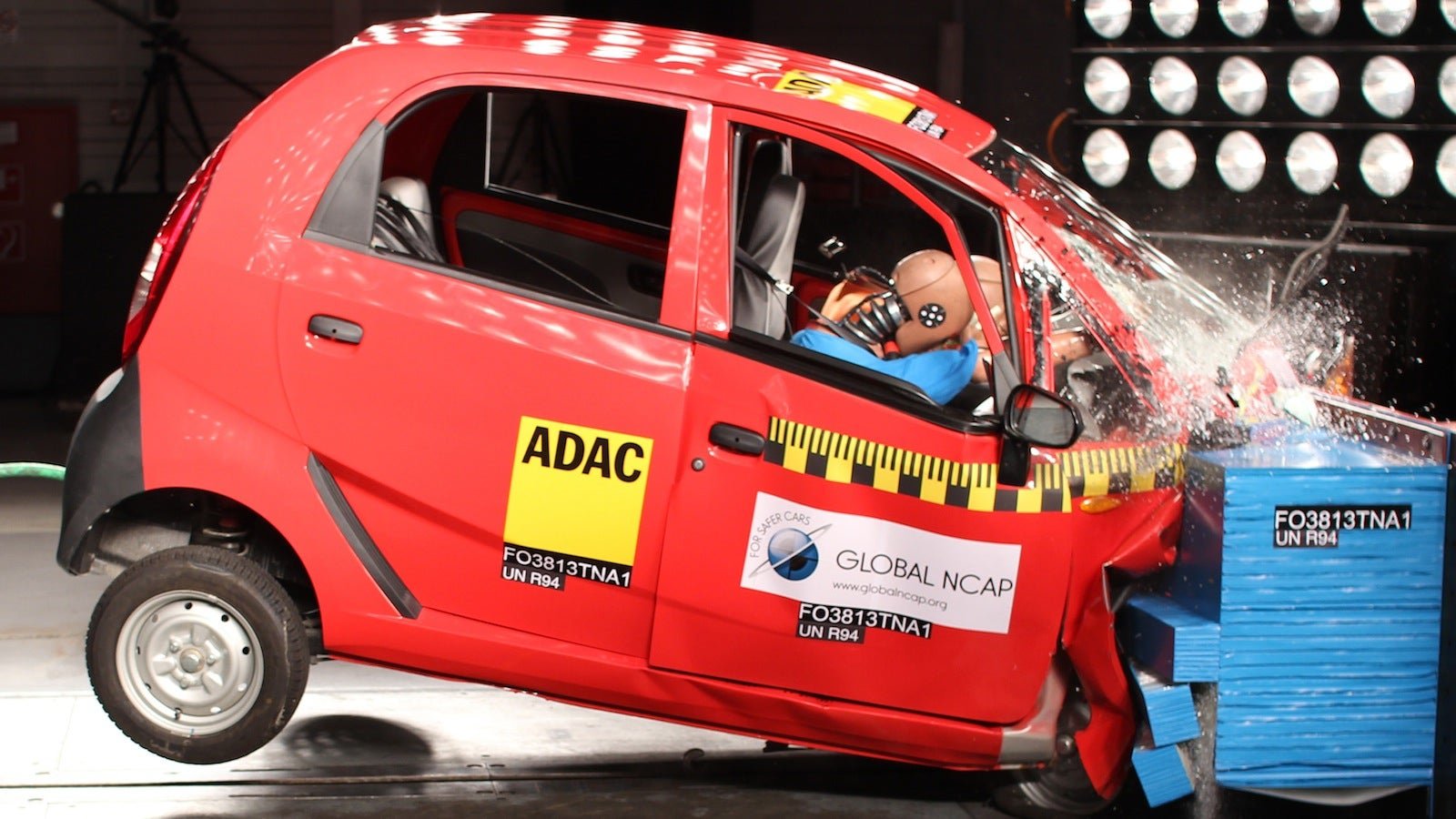Merry Christmas, India. Your cars are about to get a whole lot safer
India’s roads are deadly. On an average, one person is killed in an accident every four minutes.


India’s roads are deadly. On an average, one person is killed in an accident every four minutes.
India’s cars are no better. Some of the country’s top-selling vehicles, manufactured by domestic and international carmakers, offer miserably little protection to adult and child passengers.
But that is likely to change.
The Narendra Modi government has decided to implement compulsory crash testing for cars. All new cars in the country will have to comply with the standards from Oct. 1, 2017, while existing car models have until Oct. 1, 2019 to meet the requirements.
The tests will be carried out at new facilities in Pune and Manesar, which are expected to be fully functional by the end of 2015. Currently, cars sold in India do not have to undergo crash testing as there is no law requiring such tests—or airbags—in vehicles.
“Compliance as per crash standards AIS 098 and AIS 099 shall be mandatory for the new vehicles from 1st October, 2017. In case of existing vehicles, the same will apply from 1st October, 2019,” minister of state for heavy industries and public enterprises, G.M. Siddeshwara, told parliament on Tuesday.
Automotive Industry Standards or AIS are a set of technical specification set by the Indian government. AIS 098, according to the Automotive Research association of India, is a requirement for the protection of the occupants in the event of a frontal collision, while AIS 099 refers to the requirement for protection of the occupants in the event of a lateral (side) collision.
India is also looking to implement a new system called the Bharat New Vehicle Safety Assessment Programme, along the lines of European New Car Assessment Programme (NCAP), which will give safety ratings to the vehicles.
“The test facilities should be ready in all respects by December 2015. The Bharat New Vehicle Safety Assessment Programme (BNVSAP) Phase-I implementation is to follow this time line,” Siddeshwara added.
Between September 2013 and November 2014, Global NCAP, a UK-based non-profit had independently tested the safety features in eight Indian cars. All but one scored zero on adult protection.
The failure meant that these cars, if traveling at 64 km per hour were to crash, it would result in serious injuries or death.
“India has the potential to be a world leader in the automobile industry but Indian consumers are not aware of how unsafe they would be in case of a crash,” Global NCAP chairman Max Mosley said last month.
According to a recent study by research firm J.D. Power, an overwhelming 90% of Indian buyers want basic safety features such as airbags or anti-lock braking systems in their vehicles. But only 34% of the owners had such features in their cars.
On the other hand, manufacturers fear that implementing such safety norms will have an adverse impact on sales. “If such features are made mandatory across all variants and all models, it will result in increasing the price of vehicles and affect sales, especially at the entry level,” a senior executive at Maruti Suzuki told Business Standard newspaper.
Vehicle prices could rise by 10% to 15% once these safety norms are implemented, otherwise carmakers would have to absorb about Rs12,000 crore in additional cost if they choose not to pass it to consumers.